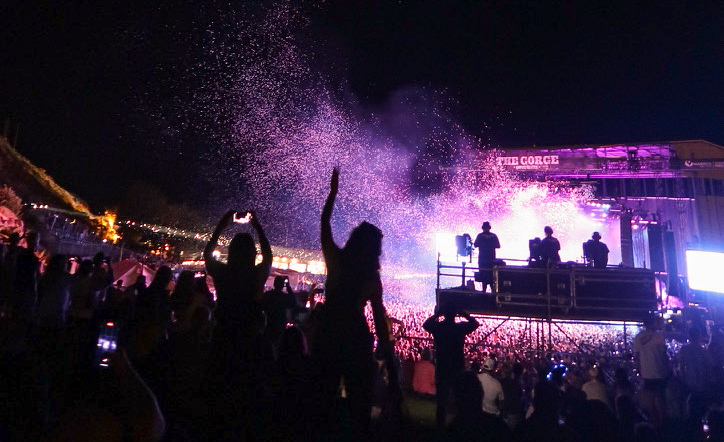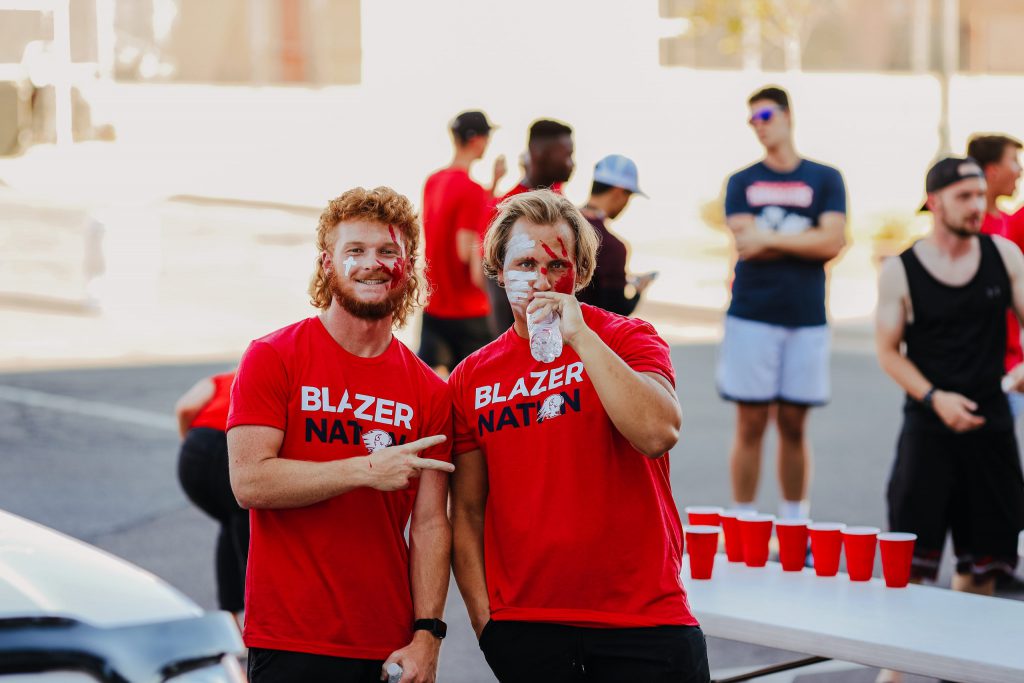Booking tickets to see your favorite artist and the anticipation leading up to the concert is such a thrill. The day of, you and your friends are getting ready for a night of live music, hearing your favorite songs and bonding with the crowd because you are all there for the same reason: the beauty of live music.
You feel the bass in your chest and waves of euphoria are washing over you. You lose yourself in the moment with every chord portraying nostalgia and raw emotion. As the final notes fade into the night, there’s a feeling of group cleansing—a wordless, shared emotion. You are energized, alive and deeply touched by the music’s ability to bring people together as you leave the show.
For festival junkies, these annual celebrations are a place for music connoisseurs to come together and absorb live music with like-minded people. Now, many festivals have become overhyped photo-ops with great music.
For example, look at festivals like Lollapalooza, Tomorrowland, EDC or Ultra Music Festival. Many younger generations, including myself, only know about these celebrations due to social media publicity and various brands sending influencers there. With the rise of modern entertainment, these publicity hubs have struck an interest in festivalgoers and will be resonating as a prominent topic of discussion in recent years.
In the early ’60s when these festivals were changing history, they were an experience full of peace, love and happiness. They were a place where some of the biggest names in the industry, underground artists and global favorite headliners would be able to share their music live with thousands of people.
With the advance of technology, so has the rise of celebrities. One viral video could give you enough publicity to become the next social media influencer or world-famous musical genius.
In the early ’80s to the 2000s, MTV was one of the only places for music fans to tune in and watch music videos and concerts, and it was a way to promote artists and new rising records. MTV played a pivotal role in the commercialization of music festivals by promoting, endorsing and broadcasting these events to a global audience while shaping the culture of the music industry.
The network launched performers like Madonna and Michael Jackson to new heights in their careers, and it also helped smaller performers get their start in the music industry. Covering festivals like Lollapalooza, Coachella, Woodstock, MTV Spring Break and Rock in Rio made it known globally of the environment and what the hype was all about.
However, we need to stop commercializing music festivals. A prime example of this is Woodstock ’99. The Woodstock Music and Art Fair had its first appearance in 1969 in upper New York, bringing together half a million people with the aspiration of celebrating three days of peace and music. Two years after the first successful appearances, Woodstock ’99 hit the radio and press to invite people for their third annual celebration.
Woodstock 99′ started out as any other year with 186,983 tickets sold. But due to publicity, over 400,000 people showed up, leading to one of the biggest festival train wrecks in history. Woodstock turned into a war zone due to the extremely poor organization, the intoxicating lineup of Limp Bizkit, Red Hot Chili Peppers and Rage Against The Machine, and the immense lack of water, food and overfilling bathrooms.
Another example of over-publicizing a festival is Coachella, one of the largest, most popular, overrated and glamorized music festivals in the United States, or California’s Disney for adults. Think of flower crowns, Tumblr 2016 era, Free People pop-ups, crochet vests, brand deals, minimal clothing and glitter. Coachella is a two-weekend festival held outside of Palm Springs, California in the Colorado Desert.
Due to the feature of many emerging artists, A-list Celebrities, social media influencers who are paid to be there, and a widespread and diverse lineup, Coachella continues to be a money pot and one big publicity stunt. This commercialization has taken away the soul of Coachella and many other music festivals and why they came to be.
As someone who has a love for live music and has been to many music events, I get the hype. I love the environment of everyone being there because we all love the same artist. I love that live music and festivals can bond people.
The publicity of these festivals has transformed the music festival business, and it is necessary to evaluate its impact and strive toward a more sustainable and equal future for live music events. As a result, ticket costs have skyrocketed and many festivals have lost their authenticity, which many people, including myself, have grown to adore.
Looking back on the musical events that you have partaken in, live music provides an indescribable feeling. The euphoric feeling after a show, when you look at your friends in awe due to the magical experience you just lived through or sitting in silence on the long drive home, is being ruined. It is time to reignite the flame of originality in music festivals honoring the legacy that has been left behind us.




